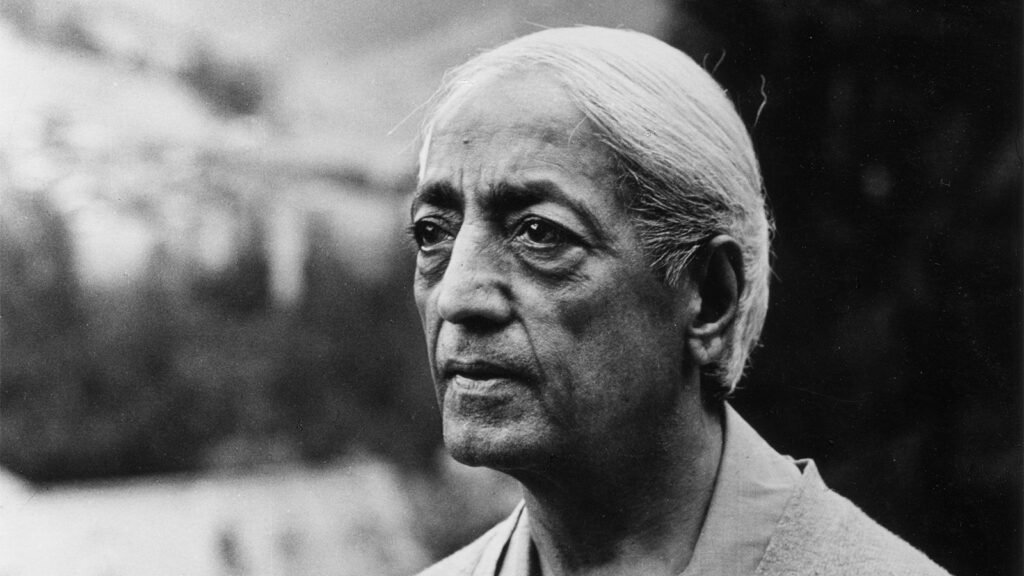Jiddu Krishnamurti, often referred to as Krishnamurti, was a remarkable philosopher, speaker, and writer who left an indelible mark on the world through his profound spiritual teachings.
Born on May 12, 1895, in Madanapalle, India, Krishnamurti’s life journey is a testament to his quest for truth, wisdom, and enlightenment.
Throughout his life, he challenged conventional belief systems and encouraged individuals to embark on a deeply personal and transformative spiritual journey.
In this blog, we will explore the essence of Krishnamurti’s spiritual teachings and delve into some of his famous speeches and teachings that continue to inspire and guide seekers of truth around the world.
The Early Years
Krishnamurti’s early life was anything but ordinary. At the age of 14, he was discovered on the grounds of the Theosophical Society headquarters in Adyar, India, by the society’s leaders, Annie Besant and C.W. Leadbeater.
They believed him to be the “World Teacher” prophesied by Theosophy, a spiritual movement that blended Eastern and Western mystical traditions. Krishnamurti and his younger brother Nitya were subsequently groomed to fulfill this role.
Spiritual Realization
However, Krishnamurti’s journey took an unexpected turn. In 1929, after years of being groomed as the “World Teacher,” he dissolved the Order of the Star, the organization created for his teachings, and renounced his supposed messianic role.
He declared that truth could not be handed down through any organization, religion, or individual, and that the path to self-realization was a deeply personal and inner journey.
Key Spiritual Teachings
Freedom from the Known: Krishnamurti emphasized the importance of freeing the mind from the shackles of conditioning, belief systems, and dogmas. He encouraged individuals to question everything, including their own thoughts, beliefs, and cultural norms, in order to discover the truth for themselves.
Observation Without Judgment: One of Krishnamurti’s central teachings was the practice of observing one’s thoughts, emotions, and reactions without judgment or condemnation. By doing so, he believed one could gain insight into the nature of the self and the workings of the mind.
Mindfulness and Awareness: Krishnamurti advocated for mindfulness and self-awareness as a means of understanding the mind and its patterns. He stressed the importance of being fully present in each moment and not dwelling on the past or worrying about the future.
Relationships and Love: Krishnamurti believed that true spiritual growth could only occur within the context of relationships. He encouraged individuals to cultivate love, compassion, and understanding in their interactions with others, as he saw these qualities as integral to the path of self-realization.
Famous Speeches and Teachings
Truth Is a Pathless Land (1929): In one of his most famous speeches, Krishnamurti dissolved the Order of the Star and declared, “Truth is a pathless land.” He urged individuals to seek truth independently, without reliance on gurus or organized religions.
The Awakening of Intelligence (1973): This series of talks and discussions explores the nature of intelligence and how it can be awakened. Krishnamurti delves into the limitations of knowledge and the possibility of transcending thought.
The Ending of Time (1985): In dialogues with theoretical physicist David Bohm, Krishnamurti explores the nature of time, thought, and the possibility of transcending the limitations of the human mind.
Freedom from the Known (1969): In this book, Krishnamurti delves into the concept of freedom and the necessity of breaking away from the known patterns of the mind to experience true liberation.
Jiddu Krishnamurti’s spiritual teachings continue to resonate with seekers of truth and wisdom worldwide.
His emphasis on personal inquiry, freedom from conditioning, and the importance of living in the present moment offer profound insights into the nature of the human mind and the path to self-realization.
Krishnamurti’s legacy is a testament to the enduring power of individual transformation and the timeless quest for spiritual enlightenment, free from the constraints of dogma and tradition.
His teachings serve as a guiding light for those who seek to awaken their inner wisdom and discover the truth that lies beyond the known.

